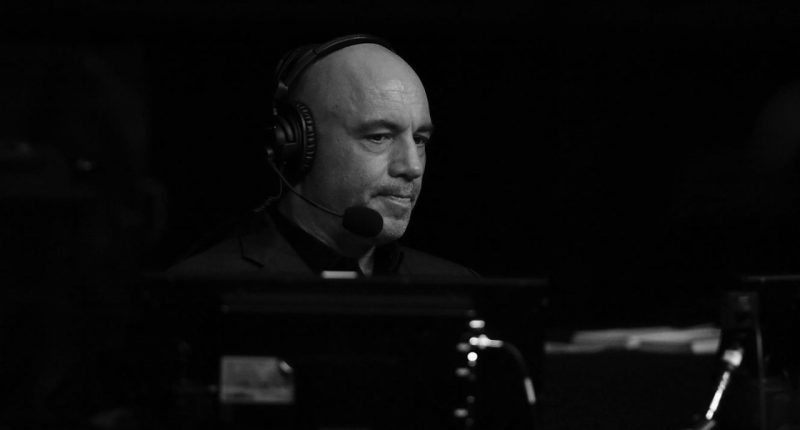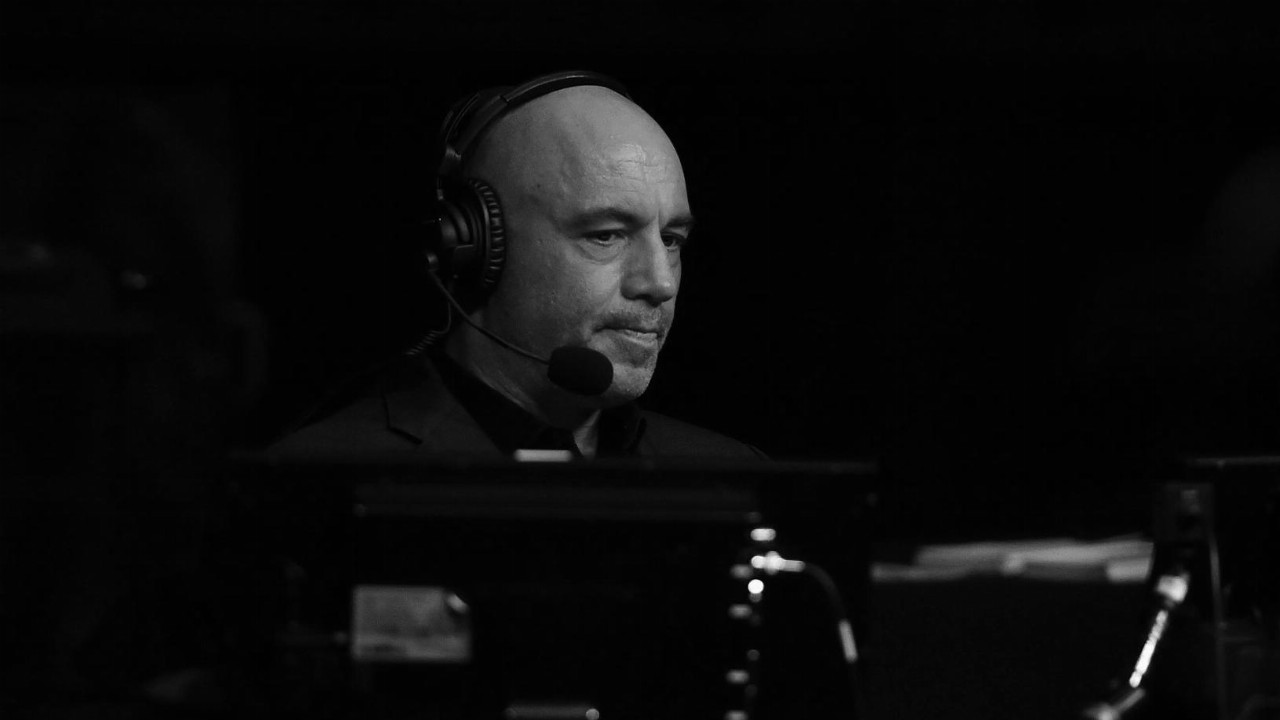Some 10 million people have watched Joe Rogan’s 2019 chat with ageless British physicist Brian Cox. The former’s contributions can be elliptical (“Woah!”) but who among us would keep pace with a Fellow of the Royal Society on his home subject over two-and-a-half unscripted hours? A comic by trade, Rogan lets his more credentialed guests talk free-associatively and at leisure. This is not his only long-form exchange with a scientist. It is not even his only long-form exchange with this scientist.
I don’t find it hard to square Rogan’s best work with the quackery that led his Spotify stablemates Neil Young and Joni Mitchell to quit the site last week. The theme that links his airing of Nobel laureates with his platforming of anti-vaxxers is curiosity run amok. With an autodidact’s indiscriminate ravenousness, Rogan wants more and more information, if not for its own sake then to eke out some competitive edge in life. A better diet, a new productivity hack: whatever might conceivably be advantageous merits air-time.
He is, in that sense, modern man incarnate. For a group with a “toxic” reputation, what stands out to me about today’s young men is how much hungrier they are for guidance than was my own cohort. At 54, Rogan is closer in spirit to the twentysomethings who email me (“What should I read?” “Am I doing one-meal-a-day right?”) than I am at 39 or was at 25.
Their generation has so normalised self-help as to blur the lines between it and general entertainment. Augie March, in the Saul Bellow novel of that approximate name, is a “born recruit”, ever on the hunt for someone whose wing he can fly under. That trait would now be too common to make for a distinctive protagonist.
Hence the rise of Rogan but also Jordan Peterson, among other secular swamis of the hour. The lateness of their arrival is telling. Having grazed in the foothills of public life until well into middle age, Rogan can now claim to be a bigger (if less directly paid-for) media entity than the FT. Obscure for even longer, Peterson now commands vast audiences for his books and lectures on how to be good at life. It is possible that their talent just bloomed late. But it is likelier — isn’t it? — that male tastes changed around them. The demand for advice boomed.
Nor is that change difficult to account for. Mine was the last batch of men to come of age before the problematisation of maleness. “Lad” was still a word with neutral connotations in Britain. Outside the usual hazards of youth, there was much less of a male-specific terrain to navigate. If that has changed (and those who think so, in my experience, include the parents of sons as much as the sons), then the appetite for advice and information, for remote mentors, is natural.
The question is whether Rogan is a good answer to it. Very often, he isn’t. It is not just the bro science of Ivermectin and elk diets. At the core of male self-improvement today is a zeal for bulking up that, for one thing, looks absurd on some frames and, for another, conveys more insecurity than it fixes. There are lots of reasons to read (and read about) the great Japanese writer Yukio Mishima but one is as a warning against the quest for bodily self-perfection. Even the rake-like Peterson exalts the gym.
Against all this, though, there are hours of righteous content to weigh. Who else is giving a mass audience 96 minutes of the now Nobel-winning scientist Sir Roger Penrose? William Hazlitt’s test for a political progressive was whether they could admit that Edmund Burke, a conservative, was a great man. Two centuries on, progressives should allow that Rogan is a frequent populariser of the great.
As for Peterson, being the product not the platform, he is harder to appraise. He certainly has too much to say about dating for a man who has been out of the scene for more than 30 years. But he is also steering men who might otherwise read nothing towards Dostoyevsky and Jung. For a sense of the generational change here, I had Liam Gallagher telling me to “make it happen” when it “comes on top”. But then, given the times, that was all I needed.
Janan Ganesh is a biweekly columnist and associate editor for the Financial Times. He writes on American politics for the FT and culture for FT Weekend. He was previously political correspondent for The Economist for five years.





